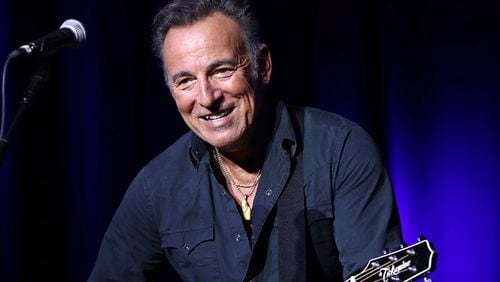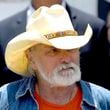On a wintry night in the nation's capital, thousands stood in line, and later stood and cheered, for a gifted and faintly prophetic figure who laid out a stirring national vision of hope. Drawing on stories from our collective roots, he reminded us, in moving poetry and soaring prose, that our country is blessed with some of the sturdiest and most resourceful people anywhere. And together we left with that renewed sense of possibility and purpose that only true leaders inspire.
If there's a common thread running through the exhaustive canon of Springsteen's music, lyrics and live performances, it is faith. Over the course of nearly five decades, the sum of his genius has become a driving testament to the power of the human spirit to rise above setbacks, outlast adversity and come out on the other end - unbowed and unbroken, if seldom unscathed.
That irrepressible belief undergirds the exuberant force and haunting fury of his melodies and rhythms. It animates his stories of fleeting triumphs and enduring hopes that keep disappointment from winning out. And it energizes his live shows with a kind of explosive precision that defies the boundaries of age and time, if not the law of gravity.
It isn't that he gives us fairy tales. As much as he celebrates the joy of life and the miracle of love, Springsteen, 66, also sings of heartbreak, betrayal and desperation on the backstreets, beaches and darkened highways of a nation in constant ferment. Springsteen's America is an edgy and often capricious place where hard-working people can lose their jobs, marriages don’t always pan out and loved ones might be taken by disaster or war.
Tribulations are borne, though, by jaunty characters with nicknames that speak to that place in the soul that just won't give up. Diamond Jackie. Little Dynamite. The Magic Rat. And alongside the pain and struggle they face lie the prospects of fulfillment and even redemption.
"Show a little faith, there's magic in the night," he implores in Thunder Road. "Hold tight to your anger, and don't fall to your fears," he counsels in Wrecking Ball. "Mister I ain't a boy, no I'm a man," he declares in The Promised Land, "and I believe in a promised land."
Springsteen doesn’t ask us to cheer up. He shows us how to believe - in ourselves, in each other and our capacity for doing better by our families, communities and country.
Listening to Springsteen's three-hour hurricane of a show - coming to Atlanta tonight - it's hard not to wonder: is there anyone who articulates a clearer vision of the essential resilience and inherent goodness of the American people?
That was once the natural purview of our political leaders, the best of whom still call on a sincere belief in the American spirit to help rally our country to higher ground. In a campaign season largely characterized, though, by the politics of anger, division, invective and fear, who will pick up that mantle and carry it forward to Election Day and beyond?
It's not unusual for artists to reflect the longings of a culture with more urgency or greater fidelity than its politicians convey. There's something wrong, though, when our purported leaders demonstrate less faith in our people than our most discerning artists embody.
Springsteen's vision isn't merely more hopeful: it rings more resoundingly of truth. Perhaps that's because it's so deeply grounded in the American experience, as expressed in Mississippi delta blues, bee-bop and rockabilly; the sounds and stories of places like New York, Chicago and New Orleans; African-American spirituals, gospel music and hymns.
When Bob Dylan sang "Shakespeare, he's in the ally," 50 years ago, in Stuck Inside of Mobile with the Memphis Blues Again, he could have been foreshadowing Springsteen. A rock bard who depicts street scenes where "kids flash guitars just like switch blades," Springsteen described his own beginnings as an against-the-odds surviver who "was born blue and weathered but I burst just like a supernova."
From there, Springsteen observes and then reports what he sees.
After the terrorist attacks of Sept. 11, 2001, he wrote The Rising, evoking the courage of a firefighter struggling to "make my way through this darkness" in a burning tower at the World Trade Center just before it collapsed.
"There's holy pictures of our children, dancin' in a sky filled with light," the fallen fireman reassures his wife from beyond the ashes, before calling on her, and the rest of the country, to "Come on up for the rising . . . lay your hands in mine."
In the aftermath of Hurricane Katrina in 2005, Springsteen wrote We Take Care of Our Own, calling out government officials "From Chicago to New Orleans, from the muscle to the bone" for failing to stand up effective disaster assistance.
Springsteen didn'’t stop, though, at finger pointing. He reminded a discouraged and disillusioned nation that its people are better than that - and we owe each other better the next time. "Where's the promise from sea to sea," he asks, before answering, "Wherever this flag is flown, we take care of our own."
And in Land of Hope and Dreams, Springsteen consolidates his vision of possibility and promise in the American journey. "Big wheels roll through fields where sunlight streams," he sings, inviting people of good will to board "This train," where "dreams will not be thwarted" and "faith will be rewarded."
Is it too much to ask that those who seek to lead us climb aboard? Is it too much to ask of us all?






